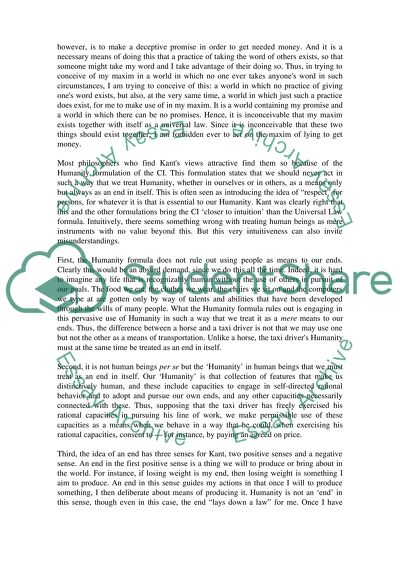Cite this document
(“Morality and Humanity In Kants View Essay Example | Topics and Well Written Essays - 1000 words”, n.d.)
Retrieved from https://studentshare.org/miscellaneous/1509869-morality-and-humanity-in-kants-view
Retrieved from https://studentshare.org/miscellaneous/1509869-morality-and-humanity-in-kants-view
(Morality and Humanity In Kants View Essay Example | Topics and Well Written Essays - 1000 Words)
https://studentshare.org/miscellaneous/1509869-morality-and-humanity-in-kants-view.
https://studentshare.org/miscellaneous/1509869-morality-and-humanity-in-kants-view.
“Morality and Humanity In Kants View Essay Example | Topics and Well Written Essays - 1000 Words”, n.d. https://studentshare.org/miscellaneous/1509869-morality-and-humanity-in-kants-view.


